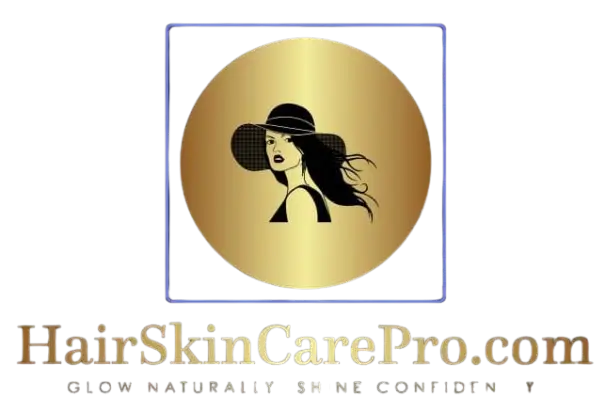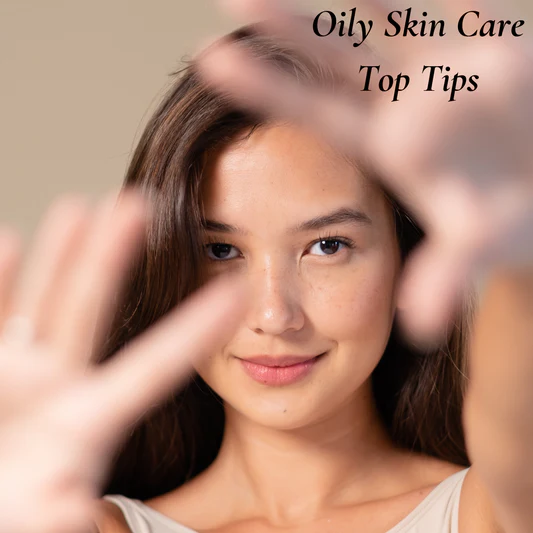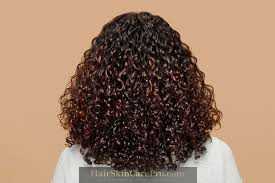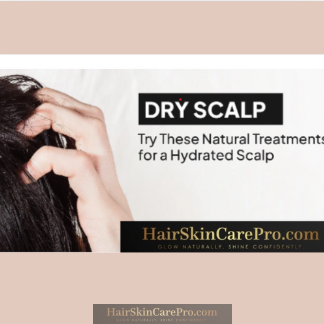HairSkinCarePro.com
Introduction:
What is oily skin? Why is my face so oily? One of the most common questions for oily skin people. When we have an oily skin, it itself brings a lot of problems like acne, clogged pores and a shiny appearance. Each factor needs to be explored further to understand why my skin is that oily. It becomes important to identify these oily face causes, so that you can control and manage excess oil production effectively.
Oily skin is one of the most common skin type issues people want to know about — you probably wonder, like many people do: why is my face so oily?, and why is my skin so oily? Understanding what causes oily skin can help you design a customized skincare routine to keep excess oil at bay. Its like, why is my face so greasy? why is my forehead so oily? why is my face oily?
It is crucial to keep track of the latest trends in skincare and any new research regarding oily skin management. However, if you have oily face, a wide range of products developed with the latest technology and research to prevent shiny skin are available in the market, which can help keep it in check
Section 1: Understanding Oily Skin
The skin type oily skin shows an overproduction of sebum, the natural oil secreted by sebaceous glands located beneath the skin surface. This excess sebum can lead to a shiny or greasy look, enlarged pores and a tendency to develop acne. The causes of oily skin are myriad:
Genetics: Oily skin can be inherited. When both the parents have oily skin, they tend to pass on an over active sebaceous gland to the children.
Hormonal fluctuations: Hormonal levels such as during puberty, pregnancy or menstrual cycle can increase sebum production.
Environmental Factors: Warm, humid environments can stimulate sebaceous glands to secrete more oil.
Diet and Lifestyle: Eating a lot of processed sugars, dairy or inflammatory foods can aggravate oily skin.
The Impact of Oily Skin on One’s Skin Health:
Having oily skin can have various effects on skin health:
Acne Formation: The excess sebum then mixes with dead skin, which causes pores to become blocked and can lead to acne formation.
Clogged Pores: Bigger pores are prone to blockage which can cause blackheads and whiteheads to form.
Shine: Overproduction of oil can lead to a shiny appearance which some people may consider unflattering.
Skin Sensitivity: Due to potential excess sebum production, oily skin can be sensitive and prone to irritation, especially when using harsh skincare products.
Facilitating understanding of these factors and the role they play in skin health is essential for creating an effective skincare regimen to manage oily skin. With a correct approach to its underlying issues and the right products, you can achieve skin that is healthy and properly balanced.
Section 2: Latest Skincare Trends for Oily Skin
Natural and Organic Products:
Today, there is a huge push towards all natural and organic products within the skincare industry. Consumers are more aware than ever about the contents of their skincare, opting for products free from harmful chemicals, parabens and synthetic fragrances. Tea tree oil, witch hazel, and aloe vera are some of the popular natural ingredients that are known to help get rid of oily skin without completely stripping skin of the moisture. I think this trend reflects a broader movement towards sustainability and eco-friendliness, with people wanting their skin care solutions to be both effective and good for the environment.
Advanced Cosmetic Procedures:
Men are leaning more towards advanced cosmetic treatments to fix different skin issues along with oily skin. Men are starting to turn to treatments like hair transplants, Platelet-Rich Plasma (PRP) therapy and dermal fillers. PRP therapy utilizes the body’s own growth factors to regenerate and also reduce oiliness. Fillers make skin texture appear better, and diminish the appearance of enlarged pores. This shift also reflects a growing acceptance among men of cosmetic treatments, allowing for a greater variety both in the treatments themselves and the issues being treated in everyday life.
At-Home Gadgets
A significant trend that we see now is the rise of at-home skincare gadgets. Devices such as LED masks, microcurrent tools and radiofrequency machines are making their way into homes. Light therapy; known for its acne-fighting abilities, these LED masks are effective in regulating sebum production. Microcurrent tools help to tone and firm the skin, stimulate circulation, and promote an all-around glow. One of them is radiofrequency devices, which provide collagen stimulation to help your skin regain elasticity and reduce oil. In-home beauty devices have been popular over the past few years, allowing people to seamlessly elevate their skincare at home.
Minimalistic Approach
There is a clear tendency for a more minimalistic approach to beauty, with everyone wanting natural, subtle results. Non-invasive instant skin boosting remedies like High-Intensity Focused Ultrasound (HIFU) and radiofrequency as you can check at Premier Aesthetica are going to be highly favored in 2024. HIFU treatments tighten and lift the skin, reduce pore sizes and oil production. It is all about helping to enhance the natural look of our skin, as opposed to a complete transformation. This trend plays into the larger “less is more” ethos, with a focus on a more minimalist approach to skincare.
Section 3: New Insights and Tips for Managing Oily Skin
Gentle Cleansing:
The initial step for managing the oily skin is to start a gentle cleansing regimen. Choose a sulphate free cleanser which does not strip the skin of its natural oils. Say no to harsh cleansers that can cause it to overproduce. Look for cleansers with calming ingredients such as aloe and chamomile that will cleanse skin without stripping it of impurities.
Exfoliation:
Exfoliation 101: Exfoliating is another key element in keeping oily skin in check. For best results, consider using products on your skin that contain chemical exfoliants, such as salicylic acid. It gets into your pores and helps dissolve excess oil and dead skin cells which helps prevent acne and blackheads. Regular exfoliation promotes the natural process of cell turnover for refined smoother skin texture.
Toning:
Choosing the right toner is important for balancing oil production. Opt for witch hazel- or niacinamide-infused toners. Witch hazel serves as an astringent to tighten pores and balance oil production. Niacinamide is anti-inflammatory and helps control sebum production. When combined with your existing routine, these toners work to quickly decrease shine and even tame pore size.
Moisturizing:
Hydration is critical for every skin type, including oily skin. Choose light, oil-free moisturizers that will provide enough moisture without clogging pores. Finding moisturizers with moisturizing substances such as hyaluronic acid and glycerin helps keep the moisture barrier of the skin (is) intact. Well-hydrated skin also is less prone to excess oil production.
Serums:
Take your oily skin care up a notch with serums that pack a real punch. They improve skin brightening and even out skin tone. Serums containing Alpha Arbutin can reduce dark spots and hyperpigmentation. These serums not only enhance the appearance of the skin, but also infuse it with necessary extracts to foster skin health.
Sunscreen:
Daily application of sunscreen is number one especially for oily skin. UV can further increase oil production and leads to premature aging. Use a broad-spectrum, oil-free, non-comedogenic sunscreen to protect your skin without causing breakouts. Matte-finish sunscreens can also help control shine during the day.
Summary:
In this article we learned the complexities of oily skin from the causes down to the reason why oily skin is not as healthy as you think. Understanding the culprit of oily skin, like genetics, hormonal fluctuations, and environmental factors is necessary to manage this skin type. We’ve also taken a look at today’s skin-care trends, from the boom in those natural and organic products to high-tech cosmetic treatments in office to the rise of at-home skin-care devices to an overall simplifying of skin-care regimens. Additionally, we discussed the science behind gentle cleansing, exfoliation, toning, moisturizing, serums, and most importantly—sunscreen (the best skincare product available)!
This not only can be seen in the comments or messages that we receive but that we also hear when we conduct these interviews. Take control over your oily skin and enjoy the benefits of a well-informed skincare routine.
We eagerly await your input! What are your experiences and advice for dealing with oily skin? Your insights may be of great help to others with similar skin issues.
Quick Note: Be sure to subscribe to our blog for more professional skin tips, insights on the latest trends, and personalized guidance to help you achieve the glow of your dreams! Subscribe and stay in the know of the best skincare services.
FAQ on Oily Skin and Face
Why is my oily skin suddenly worse after [specific event, e.g., pregnancy, starting a new medication]?
During pregnancy: During pregnancy, hormone levels change, causing increased levels of estrogen and progesterone that can stimulate oil glands.
Medications: Some medications such as corticosteroids, lithium, and some antipsychotics can trigger oily skin as a side effect.
Other Triggers:
Stress: Stress hormones may increase oil production.
Diet: Drastic dietary shifts can throw the body out of whack, worsening skin conditions.
New Skin Products: Introducing new products, creams, and lotions into the skin care routine can be irritating and cause the skin to produce more oil as a defense mechanism.
Environmental Factors: Differences in weather, humidity, and pollution can affect oil production.
CeraVe Oil Control Moisturizing Gel-Cream
About the product
- Face Moisturizer for Oily Skin
- Niacinamide, Hyaluronic Acid & Oil Absorbing Technology To Rebalance Oily Skin
- Non-Comedogenic, Fragrance Free & Oil Free
Best diet for oily skin and acne prone skin in [specific region/culture]
General Principles:
Eliminate Processed Foods: Focus on the consumption of fruits, veggies, lean meats, and whole grains.
Avoid Processed Foods: Cut down on soda, fast food and processed snacks.
Healthy Fats: Consume foods rich in omega-3 fatty acids (e.g., fish, flaxseeds, walnuts).
Hydrate: Stay hydrated each day.
Vods: Culturally Relevant Explicatives
Mediterranean: Lots of fruits and vegetables, olive oil and fish, known for oxidative and antiinflammatory properties.
Japanese Diet: Rich in seafood, seaweed, and vegetables, offering key nutrients that might have anti-inflammatory effects.
Indian Diet: Rich in lentils, spinach and tumeric, which have anti-inflammatory properties.
Oily skin care routine for men with beards” (Addressing a common male grooming challenge)
Cleanse: Lemon and herbal tea, again, are the best cleansers for face beard, so wash your beard twice daily with a soft, beard-specific cleanser. Avoid harsh soaps.
Exfoliate: Use a gentle scrub 1-2 times a week to slough off dead skin cells and prevent ingrown hairs.
Moisturizing: Apply a light, oil-free, beard conditioner (designed for beard skin and hair).
For condition, £20; cotetibile.com: Apply a beard oil or balm to soften the hair and reduce frizz.
Face Wash: Treat your face separately from your beard to ensure oil and bacteria are not transferred.
Use a Beard Wash: Use a beard-specific wash rather than your regular shampoo for a potentially gentler clean.
Natural remedies for oily skin that are safe for sensitive skin
Tea Tree Oil: Antibacterial and anti-inflammatory. Before using, dilute with a carrier oil (such as jojoba or coconut).
Aloe Vera: It can soothe, hydrate, and reduce inflammation.
Witch Hazel: It is said to have astringent properties that tighten pores and control oil production.
Green tea: Its antioxidants may calm inflammation.
Clay masks: Bentonite or kaolin clay can draw out excess oil from your pores, diminishing their appearance. Opt for sensitive skin formulations.
Oily skin and makeup: best foundation for hot, humid climates” (Environment-specific needs)
Matte Finish: Choose foundations that have a matte or oil-free finish to absorb oils and reduce shine.
Long-Wearing Formula: Choose long-wearing foundations that will resist melting or transferring in the heat and humidity.
Water Based: Water based foundations are lighter and less pore-clogging.
Oil-Free Primers: Apply a mattifying primer under foundation to reduce oiliness and even the skin.
Powder Foundation: Use a mineral powder foundation for touch…
Can stress cause oily skin and breakouts in teenagers?” (Age-specific focus)
Stress does indeed have a major effect on skin health. Stress causes a release of hormones, such as cortisol, that can ramp up oil production.
The adolescent years can be a time of particular vulnerability to skin conditions related to stress — increased hormonal activity coupled with greater vulnerability to stress.
Stress Reduction: If appropriate, you can engage in activities that help reduce stress, such as exercising, mindfulness, and relaxation.
Oily skin in humid weather: how to control shine without drying out the skin” (Balancing oil control with hydration)
Does washing your face too often make oily skin worse?
Light Moisturizer: Choose a lightweight, oil-free moisturizer to keep skin hydrated without using excess oil.
Mattifying Products: Stock up on blotting paper or mattifying powder to keep excess oil at bay throughout the day.
Gentle cleansing: Avoid using cleansers that can strip skin of its natural oils, leading to more oil production.
Hydrating Toners: To refresh your skin and add moisture without the oil.
Facial Mist: A hydrating mist can help refresh the skin during the day without weighing it down.
Best facial cleansers for oily skin with large pores?
Overwashing can exacerbate oily skin.
Removing natural oils — if natural oils are stripped, oil glands will be encouraged to produce more oil.
Daily Cleansing Twice: Cleansing twice daily should be sufficient for oily skin for most people.
Gentle Cleansers: Use gently, non-drying cleansers that avoid hot water to prevent irritation.
Οf the best facial cleansers for oily skin and big pores
Salicylic Acid Cleansers: This one unclogs pores and exfoliates the dead skin.
Benzoyl Peroxide Cleansers — Kills acne-inducing bacteria.
Clay Cleansers: Soaks up oil and minimizes pores.
Gel Cleansers: Water-based, perfect for oily skin.
Non-Comedogenic: For a clean slate, opt for a non-comedogenic cleanser that won’t clog pores.
Oily skin and hormonal imbalances: how to identify and address the root cause” (Deeper dive into hormonal factors)
Identify Potential Causes:
Hormonal Imbalances: occurring when there is a shift such as puberty, pregnancy or menopause or due to some other conditions like polycystic ovary syndrome (PCOS).
Thyroid issues: Hypothyroidism and hyperthyroidism can affect oil production.
Medications: Certain medicines can disrupt the hormones and aggravate oily skin.
Address the Root Cause:
To Diagnose and Treat: If a hormonal imbalance or underlying medical problem, seek recommendation from the doctor for diagnosis and treatment.
Hormone replacement therapy (HRT): This may be just what the doctor ordered for menopause women experiencing hormonal changes.
Lifestyle Changes:
Stress Management: Yoga, meditation, deep breathing.
Avoid too much sugar: High blood sugar can affect hormone levels. Exercise: Regular physical activity can help normalize hormones.
Eat a Balanced Diet: Maintain a fine diet that is filled with vegetables, fruits, and whole grains, and watch sugar and saturated fat.
Can certain foods directly cause oily skin and breakouts?” (Specific food-skin connections)
While the direct relationship is not always apparent, these foods might be involved:
High GI Foods: Sweet foods and refined carbohydrates can increase your insulin levels which can in turn increase oil production.
Dairy: Some studies show that dairy can worsen acne in some individuals.
Processed foods often contain unhealthy fats and chemicals that can cause inflammation.
Chocolate: Possibly some small benefit in some people; need more studies.
My entire family had different reactions to foods.
Oily skin care routine for people with rosacea” (Addressing co-occurring skin conditions)
Skip Harsh Cleansers: A routine, nontoxic face wash is essential to refrain from aggravating the skin.
Moisturizer: apply light-weight oil-free moisturizer to hydrate the skin without clogging the pores.
Avoid Irritants: Avoid strong soaps, alcohol-based products and fragrances that may be irritating to rosacea.
Use sunscreen every day — SPF 30 or higher, broad-spectrum.
Cold Compresses: Apply cold compresses to soothe inflamed and red skin.
Don’t Ignore It Consult a Dermatologist
Best moisturizers for oily skin that don’t clog pores” (Finding the right balance of hydration and oil control)
Gel Moisturizers: Cooling and lightweight, ideal for oily skin.
Water-Infused Moisturizers: These provide hydration without added oil.
Lotions: Thinner than creams and less likely to feel greasy.
Non-Comedogenic Labels: Non comedogenic labelled products do not clog pores and work wonders.
Key Ingredients: Hyaluronic acid, glycerin and ceramides.
Oily skin and exercise: how to keep skin clean and oil-free during workouts” (Practical tips for active individuals)
So сыр face before and after: Before and after sweat, dirt and oil intolerance, wash face.
Use Non-Oil Sunscreen: You should apply a broad spectrum, oil free sunscreen before the normal workout.
Wear Sweat-Wicking Clothes: Go for fabrics that breathe, and draw sweat away from the body.
The solution for hair: Hair pulled back is also linked to the transference of oil and perspiration from hair to face.
Swab Away Gym Germs: Wipe down taps and disinfectants before use.
Can certain medications cause oily skin as a side effect?” (Medication-related skin changes)
Sure enough, oily skin can be a side effect of some medications.
Common Culprits Include:
Corticosteroids: Can increase oil production.
Lithium: Stabilizes bipolar disorder.
Some Antipsychotic Drugs
Commonly Used Anticonvulsant Drugs
Talk to your doctor if: If medications could be at play, discuss your options with your doctor.
Oily skin in winter: how to prevent dryness and maintain balance” (Seasonal skincare considerations)
Gentle Cleanse: Use a gentle hydrating cleanser that won’t strip the skin of its natural oils
Hydrating Moisturizer: Use an oil-free, lightweight moisturizer that will provide hydration without blocking the pores.
Humidifier: If the indoor environment is too dry, a humidifier is a good option to add a little moisture in the air.
Protect Your Skin from Chilly Weather: A scarf or hat can help protect the face from rough wintry winds.
Skip the Hot Shower: Shower with mesh or lukewarm water instead of hot water that can dehydrate the skin.
Why is my face so oily?
That means your face might produce excess sebum because of overactive sebaceous glands. Genetics, hormones, diet and skincare products can all be responsible for this condition.
Why is my skin so oily?
Oily skin can be due to many reasons including genetics, hormonal changes, stress, and the use of specific skincare products. It can also be present in younger people and environmental factors (such as humidity) may also affect it.
What causes oily skin?
Oily skin occurs when the sebaceous glands produce excessive sebum. Hormonal changes, genetics, diet, stress and the use of wrong cosmetics can influence the same.
Why is my face oily?
Oily face is usually caused by hyperactive sebaceous glands. Hormonal changes, especially during puberty, pregnancy, or menstrual cycles, can cause an increase in oil production. Your diet and skincare habits also play a big part.
Oily face causes?
Genetic factors, hormonal changes, diet, stress, and the use of certain skin care products are the primary causes of an oily face. Environmental factors like humidity and pollution may also contribute to oiliness.
Why is my face so greasy?
Oily skin is usually because of excessive secretion of sebum by the sebaceous glands. Hormonal changes, genetics, diet, stress, and the application of heavy or comedogenic skin-care products can all trigger this.
Why is my forehead so oily?
The forehead is in the T-zone, where oiliness is more common thanks to a greater presence of sebaceous glands. Hormonal fluctuations, genetics, and skin care products are some of the factors that lead to an oily forehead.
Why is my face greasy?
For example, excessive greasiness on the face is because of overactive oil glands, which secrete excessive amounts of sebum. Hormonal changes, genetics, diet, and some providers of skin care can also lead to this condition.
What causes oily face?
Oily face occurs due to the over secretion of sebum from the sebaceous glands. This can be affected by genetics, hormonal changes, food, stress and the use of unsuitable skin care products. Environmental factors, such as humidity, can also be involved.
Next Blog A Comprehensive Overview of personal care products of unilever in America for 2025




